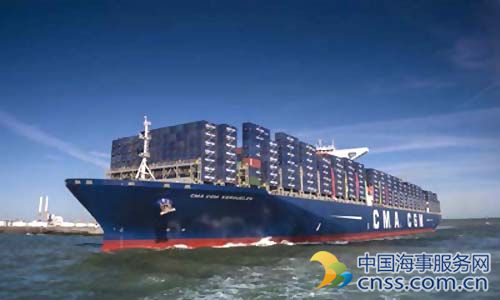Second hand vessels’ prices pick up in tandem with freight rates

Prices for second hand vessels, especially for dry bulk carriers have started to pick up lately said Allied Shipbroking. In its latest weekly report, it said that “it has been a year full of turmoil and poor market performance in the shipping markets, yet over the past couple of months both sentiment and real market direction has shifted and along with this so have asset prices of secondhand tonnage”.
According to George Lazaridis, Head of Market Research & Asset Valuations, “during this course we have seen some of the lowest levels being reached in the dry bulk market, with asset prices touching close to absolute bottom. Yet since the shift in the freight market noted in April/May, we were put on an upward course in terms of asset prices as a large number of buyers with financial backing flocked to take on tonnage at these highly competitive levels. As this developed we started to see a quick shift in pricing, and each deal started to indicate an ever higher price than the last”, he said.
Meanwhile, Lazaridis noted that “during this, close to three month period, there has been a close to 13-14% rise in prices for 5 year old assets in the Handysize and Supramax size range while in the larger Capesize and Panamaxes this has been limited to a more moderate 7-8%. Having said that however it has been modern Panamaxes/Kamsarmaxes that have noted the most significant rise in secondhand asset prices since their absolute lows during the start of the year, noting a 17% increase since the start of April, with Supramaxes closely following on that with a nearly 14% rise. The early and more significant increase in prices in the Panamax/Kamsarmax size segment is indicative of the clear preference buyers have for these vessels. Given the state of the market and the more promising indicators for routes and commodities primarily suited for the Panamax/ Kamsarmax range, this has helped it become the better investment option.
Allied’s analyst added that “the view is not as clear cut as that however. On the one hand if one takes under consideration the fact that the average spot freight rate for Panamaxes has risen by 205% from its absolute low in February, while in 2015 it had only risen by 171% during the same period and from its then lowest point, you can see a case for optimism. At the same time however its worth pointing out that freight rates on the 17th of July 2015 where at US$ 9,261 per day while asset prices where on a softening trend and a 5 year old panamax vessel would be seeing levels close to that of US$ 16.5 million, while in comparison today we are talking about an average rate of US$ 6,987 per day and asset values of only US$ 13.5 million. So in theory this might well be more balanced out then what one would imaging at first sight. The major difference to all this is that last year the market was improving much faster while it hadn’t reached as dire conditions during its low point during the first quarter of the year, while sentiment was also in a better state amongst bueyrs. This has all changed, having gone through one of the most painful periods (in terms of earnings) in the recent years. As such there has also been a major shift in the prime reasoning behind the purchase of assets as well”.
Lazaridis went on to mention that “over recent months, the largest majority of buyers are clearly looking at assets compared to their given price and not as much in reference to the potential earnings they can generate over the next 3-5 years. The reasoning goes that they have the better security of generating a good yield for their investment from any potential upswing in asset prices, while they are also able to decrease the average investment amount per vessel in their fleet making their capital expenditure more viable per vessel during this downturn. The risk however is still significant and given the fact that you may need to support the vessel financially down the line, it might make for bigger problems rather than a safety net”, he concluded.
Nikos Roussanoglou, Hellenic Shipping News Worldwide
HEADLINES
- Do shipping markets want Biden or Trump for the win?
- All 18 crew safe after fire on Japanese-owned tanker off Singapore
- Singapore launching $44m co-investment initiative for maritime tech start-ups
- Cosco debuts Global Shipping Industry Chain Cooperation Initiative
- US warns of more shipping sanctions
- China continues seaport consolidation as Dalian offer goes unconditional